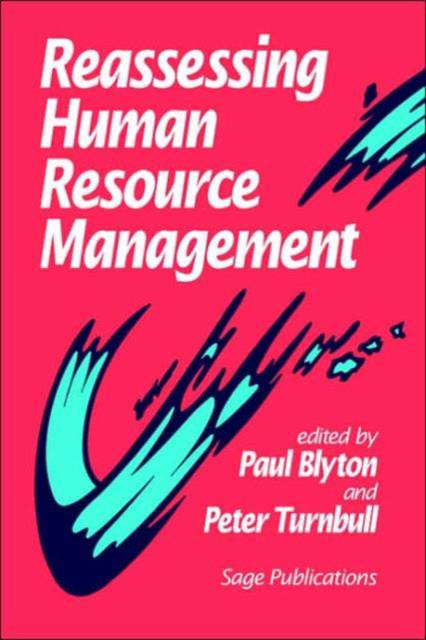
- Afhalen na 1 uur in een winkel met voorraad
- Gratis thuislevering in België vanaf € 30
- Ruim aanbod met 7 miljoen producten
- Afhalen na 1 uur in een winkel met voorraad
- Gratis thuislevering in België vanaf € 30
- Ruim aanbod met 7 miljoen producten
Zoeken
€ 128,45
+ 256 punten
Omschrijving
Drawing on a wide range of organizational examples, this book brings a new balance to assessing the role and impact of HRM. It looks at the core assumptions of an HRM perspective, and at what happens when organizations seek to implement HRM. The contributors show that there are a number of tensions and contradictions inherent in an HRM concept that raise central issues for practice. They demonstrate that HRM is one approach to employee management that will tend to prevail in certain contexts and conditions rather than universally.
Specific themes include: HRM and competitive success; organizational culture and HRM; HRM, flexibility and decentralization; reward management and HRM; HRM, Just-in-Time manufacturing and new tech
Specificaties
Betrokkenen
- Auteur(s):
- Uitgeverij:
Inhoud
- Aantal bladzijden:
- 288
- Taal:
- Engels
Eigenschappen
- Productcode (EAN):
- 9780803986985
- Verschijningsdatum:
- 18/02/2002
- Uitvoering:
- Paperback
- Formaat:
- Trade paperback (VS)
- Afmetingen:
- 156 mm x 234 mm
- Gewicht:
- 399 g

Alleen bij Standaard Boekhandel
+ 256 punten op je klantenkaart van Standaard Boekhandel
Beoordelingen
We publiceren alleen reviews die voldoen aan de voorwaarden voor reviews. Bekijk onze voorwaarden voor reviews.







